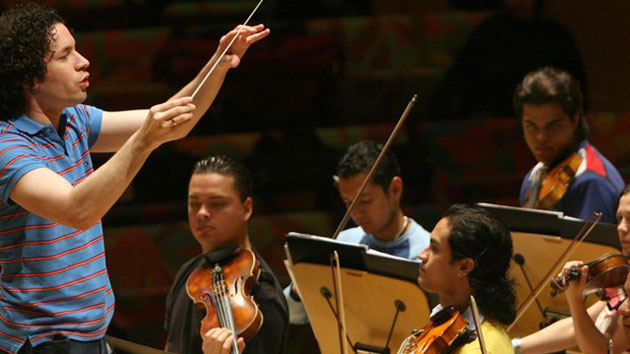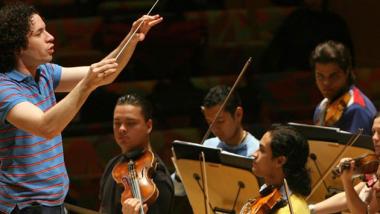
Half a century ago, the term “Berkeley radical” invoked a vision of a long-haired University of California student with his or her fist in the air, loudly advocating for freedom of speech, equal rights, and other ideals of the era. As announced on Tuesday by Cal Performances artistic director Matias Tarnopolsky and board chair Gail Rubinfeld, the “RADICAL” centered on the Berkeley campus is now an acronym for “Research and Development Initiative In Creativity, Arts, Learning”, a program aimed at a generation clutching iPhones in its fists, rather than picket signs. How things have changed!
“Broad dissemination . . and results in contemporary digital forms” are cited in the program’s press release as essential goals of the program, with Cal Performances events being made available through podcasts on iTunes, along with programmed selections of participating artists. First up, when RADICAL (tweet: #BerkeleyRADICAL) occupies the University in September 2015, is Gustavo Dudamel with the Simón Bolívar Symphony Orchestra of Venezuela, from the nation where the energetic conductor garnered his own youthful musical inspiration, just as the Internet was beginning to conquer Latin America. Dudamel and his ensemble will present open rehearsals and concerts live and virtually, and will also manifest across a broad spectrum of the University’s curriculum and in community and public school visits around the Bay Area.
Symposia, forums, and research derived from the RADICAL process will ponder such questions as what it means to be artistically literate, and how the digital age is impacting live arts. “We assert that the arts are necessary,” Tarnopolsky declared in the press release, “that they enhance our ability to handle change and challenges, and that they are essential to sustain and advance our society.” Rubinfeld explicitly acknowledged “Ann and Gordon Getty and Jan Shrem and Maria Manetti Shrem for their visionary [and financial] support” for the new program.

